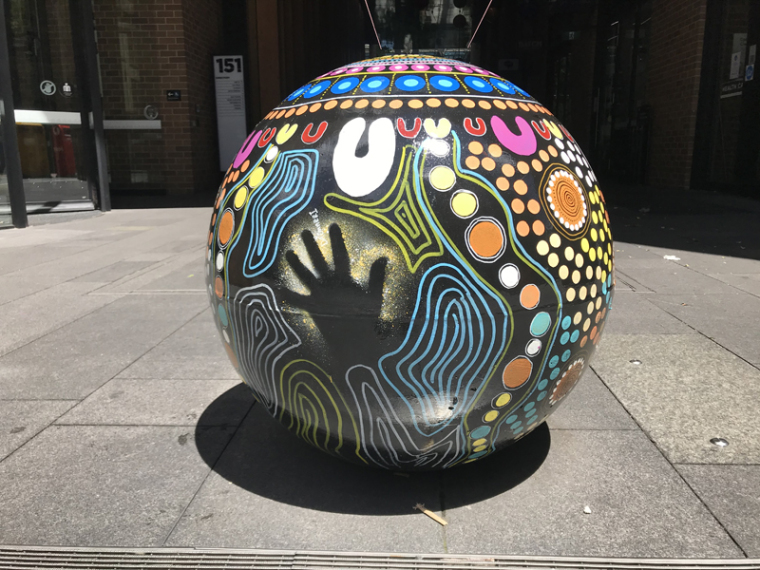
Walking in the streets and alleyways of Sydney’s Circular Quay and Rocks precinct is like finding your way through a maze. When the first fleet landed at Sydney Cove in 1788, urban design wasn’t exactly top of the list as far as priorities were concerned. It was to be a penal settlement after all. Other than foot traffic, horse and cart was the mode of travel, and thoroughfares developed in an ad-hoc way.
These days, the area is well-known for its euphoric feeling with icons like the Sydney Harbour Bridge, the Sydney Opera House, high-rise buildings and the quay itself punctuating the landscape. Not to mention a vibrant dining, entertainment, shopping and weekend markets experience.
Of course, Sydney does not stand alone with its maze-like early development and contemporary life. Similarities exist for other great cities of the world, including New York and its Lower Manhatten area and San Francisco and its historic waterfront precinct. Harbourside environs in Cape Town, Istanbul and Hong Kong also come to mind.
If you’re unfamiliar with such city areas, there’s no question you will need help navigating their many twists and turns. Tourists are often seen, map in hand, discussing directions with locals.
But for the conscientious pedestrian, entering the earliest – and now preserved and celebrated – settlements of the great cities of the world should also trigger an awareness of the sins of colonization that can easily be forgotten amid the enjoyment on offer. Indigenous lives lost, land taken, identity pillaged and children stolen at the hands of colonizers, are, in our 21st century way of thinking, unthinkable.
In Australia, the plight of our Indigenous peoples has itself taken many twists and turns since settlement 234 years ago, making for a complex and at times volatile human maze. Latterly, remedial action through land compensation, the 2008 national apology and formalized recognition of their civilization and traditional custodianship have opened a significant space for the healing of deep wounds and the forging of a more purposeful and reconciled relationship between us.
Actions taken in the United States, Canada, New Zealand and South Africa have opened similar spaces for healing and reconciliation, signaling a global move towards races or civilizations living with respect for one another and in harmony rather than at war or seeking to destroy one another.
How sad it was for our world, therefore, to watch Russia invade Ukraine last month and to see it advancing with its tanks and artillery towards the beautiful, historic city of Kyiv, causing untold damage in towns and villages along the way. Ukraine have mustered strong resistance to the invasion. Sadly, in only one month of fighting, at least 20,000 people have lost their lives (including more than 1,000 civilians), approximately 10 million have been displaced, and property damage is estimated at USD119 billion.
I must admit to praying more about this conflict than about any other world issue since it began on 24 February. It’s a tough call for Ukraine in the first instance. It’s hard not to fight force with force and they have been very strategic and clever in how they have implemented the defence of their country.
It’s a tough call also for the world community as it considers how it can appeal to Russia to stop the invasion. And it’s a tough call now for Russia’s leaders to step back from their show of force and to live in peace with their neighbours.
Pride is now involved, and one suspects that a little bit of help from above might be required right about now. In today’s world, you don’t need to be navigating streets to feel like you’re in a maze. We need less suspicion and more trust, less murkiness in our communication and more openness, a deep inner resolve to judge our own motivation and insatiability before inflicting damage at will on others.
The world is holding its breath for peace in Eastern Europe. But it was Saint Peter who wrote that what we really need is love and respect for each other, including for our differences. “Above all,” he said, “love each other deeply, because love covers over a multitude of sins’ (1 Peter 4:8, NIV). And it was Jesus Christ who chose the bowl and the towel as the essence of his leadership, not the sword.
Peace will come only out of leadership with genuine, forgiving love for humankind at its centre. It’s a tough call that can be the focus of our prayers and the solution to finding our way.

Peter McGuigan describes himself as a ‘communicator and collaborator for a better world’. He is the writer of a substantive body of opinion and feature articles, and is the author of books on leadership, church polity and spirituality. He delivered award-winning journalism across several editorships and has led teams large and small in both communications and front-line mission work as a Salvation Army officer, including internationally. He has also served as the President of the Australasian Religious Press Association and Chair of The Salvation Army’s Moral and Social Issues Council. He holds a Master of Arts (Writing).